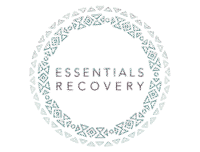Addiction recovery is a multi-faceted journey that extends beyond simply abstaining from substances. It involves healing the mind, body, and spirit. While traditional components like counseling, group therapy, and medication play crucial roles, incorporating therapeutic activities can significantly enhance a person’s experience and long-term success in recovery. These activities offer a constructive way to process emotions, build self-awareness, reduce stress, and develop healthy habits.
Therapeutic activities are not just optional extras; they are essential tools that help individuals rediscover joy, purpose, and creativity—all of which are often diminished during active addiction. Recovery programs that include these types of interventions create more holistic and engaging experiences that nurture lasting change.
Addressing Emotional Healing Through Expression
One of the primary benefits of therapeutic activities is the opportunity for emotional expression. Addiction frequently stems from or leads to unresolved trauma, grief, anxiety, and depression. Traditional talk therapy helps address these emotions, but for many people, expressing their feelings through creative outlets is more comfortable or accessible.
Art therapy is one example of how expression can lead to healing. Whether it’s painting, drawing, sculpting, or collage-making, art provides a way for individuals to externalize internal struggles. These forms of expression often reveal emotions that are difficult to articulate in words. The nonverbal nature of art helps break down barriers, especially for those who are early in recovery and not yet ready to talk openly.
Other expressive outlets such as journaling, poetry, or creative writing also offer powerful ways to process feelings. These activities give participants space to reflect on their experiences, identify triggers, and track progress in a safe and judgment-free way.
The Power of Movement and Physical Activity
Physical activity has well-documented benefits for mental health and is an essential component of many recovery programs. Exercise releases endorphins, which naturally improve mood, reduce anxiety, and promote better sleep—all critical for people in recovery. Incorporating physical activity also helps rebuild a positive relationship with one’s body, which may have been neglected or harmed during substance use.
Yoga, for example, combines physical movement with breathwork and mindfulness, helping participants manage stress and increase self-awareness. It promotes emotional balance and builds a deeper connection between the body and mind. Yoga is often used in recovery settings to help individuals stay grounded and present, especially during moments of craving or emotional overwhelm.
Other forms of physical activity like hiking, swimming, or group fitness classes can also foster a sense of community and accomplishment. These activities are enjoyable, provide a sense of routine, and serve as healthy alternatives to substance use.
Music as a Tool for Healing
Music therapy is another valuable component of therapeutic programming in recovery. Listening to, creating, or discussing music helps individuals explore emotions and memories in a non-threatening way. Music can evoke deep feelings, trigger important memories, or simply offer comfort and motivation.
Participating in music therapy sessions—whether through playing instruments, songwriting, or group drumming—encourages self-expression, builds confidence, and fosters social connection. For many in recovery, music is a lifeline that provides emotional relief and an outlet for personal storytelling.
Even outside of structured music therapy, integrating music into daily routines can offer consistent mood regulation and serve as a coping mechanism during challenging moments.
Nature-Based and Outdoor Activities
Spending time in nature has restorative effects on mental health and can significantly aid recovery efforts. Nature-based therapies like outdoor meditation, wilderness therapy, or gardening offer grounding experiences that reconnect individuals to the world around them.
Gardening, for example, is not only therapeutic but also symbolic. Watching something grow through patience and care mirrors the recovery journey itself. This process helps reinforce themes of nurturing, responsibility, and resilience.
Wilderness retreats or group hikes provide opportunities to practice mindfulness, teamwork, and self-reliance. These experiences often build confidence and foster a sense of wonder, reminding individuals that joy and peace can be found outside of substance use.
Incorporating time outdoors, whether structured or informal, promotes physical well-being while calming the nervous system. It can also help reduce feelings of confinement or restlessness, especially for those in residential treatment programs.
Role of Mindfulness and Meditation Practices
Mindfulness is the practice of staying present and aware without judgment. It is a skill that can help individuals in recovery recognize cravings, reduce reactivity, and make conscious decisions. Many recovery programs incorporate mindfulness-based practices like guided meditation, breathing exercises, or body scans.
These activities help participants develop emotional regulation and increase their ability to tolerate distress. Over time, mindfulness can reduce the intensity of negative thought patterns and improve overall well-being. It also encourages individuals to accept their experiences rather than resist them, making it easier to cope with uncomfortable emotions without turning to substances.
Mindfulness doesn’t require special equipment or training, which makes it highly accessible. With regular practice, it becomes a powerful tool for managing the highs and lows of recovery.
Creative and Experiential Therapies
Experiential therapies involve engaging the body and emotions in unique ways to process trauma and develop coping skills. These therapies can include drama therapy, dance movement therapy, or even equine-assisted therapy.
Drama therapy encourages role-playing and storytelling to explore past experiences, challenge negative self-beliefs, and envision future possibilities. It allows participants to practice new behaviors and responses in a safe environment.
Dance and movement therapy help release built-up tension and foster body awareness. They offer a nonverbal way to express and explore feelings, which can be especially helpful for individuals who struggle with traditional talk therapy.
Equine therapy, which involves interacting with horses under the guidance of a therapist, promotes trust, emotional regulation, and responsibility. Working with animals can be calming and grounding, offering immediate feedback and fostering empathy.
These non-traditional approaches enrich recovery programs by offering diverse ways to heal and grow, accommodating different learning styles and preferences.
Skill-Building and Structured Hobbies
Therapeutic activities can also include skill-building and structured hobbies that support personal development. Activities such as cooking, woodworking, photography, or crafting teach practical skills and build self-esteem. They also give individuals something to look forward to and invest time in as they build new routines.
Learning and mastering a new skill brings a sense of accomplishment. It also helps fill time that might otherwise be spent engaging in unhealthy behaviors. These hobbies provide a constructive outlet for stress and boredom, which are common relapse triggers.
In group settings, structured hobbies also promote social interaction, cooperation, and communication. Participants can share their creations, learn from each other, and celebrate progress together.
Reinforcing Program Goals Through Activities
When integrated thoughtfully, therapeutic activities are more than just a break from counseling—they become essential extensions of the program’s core goals. These activities reinforce what is being learned in therapy, help apply new coping skills, and build confidence through real-world experience.
For example, if a therapy session explores themes of identity and self-worth, a journaling exercise or art project can help deepen understanding and encourage reflection. If communication is a goal, a group activity involving teamwork or role-playing can help participants practice those skills in a safe setting.
By aligning therapeutic activities with treatment goals, recovery programs become more cohesive, engaging, and impactful.
Encouraging Long-Term Lifestyle Changes
Sustainable recovery is about building a life that feels fulfilling and meaningful without substances. Therapeutic activities lay the groundwork for these changes by introducing positive habits and interests that can continue after treatment ends.
Activities like yoga, journaling, or painting can easily be practiced at home. They offer healthy coping strategies that reduce the likelihood of relapse. Over time, these practices become part of a new identity centered around wellness, creativity, and growth.
By encouraging continued participation in therapeutic activities, recovery programs help individuals build a lifestyle that supports long-term sobriety and emotional balance.
Creating a Well-Rounded Recovery Experience
Incorporating therapeutic activities into recovery programs adds richness and depth to the healing process. It ensures that recovery is not just about what is being left behind, but about what is being gained—a sense of purpose, connection, creativity, and resilience.
These activities engage the whole person and make recovery feel more personal and empowering. They foster self-discovery, reduce stress, and provide healthy alternatives to substance use. Most importantly, they remind individuals that healing is possible—and that the journey can be meaningful, joyful, and even fun.
For those designing or participating in a recovery program, therapeutic activities should not be seen as optional. They are vital components that nurture long-term growth, emotional well-being, and a deeper connection to life beyond addiction. Call us today at 855-509-1697.



